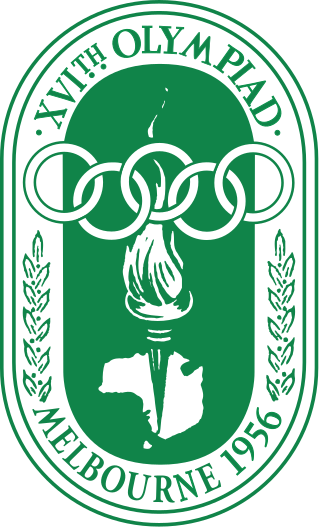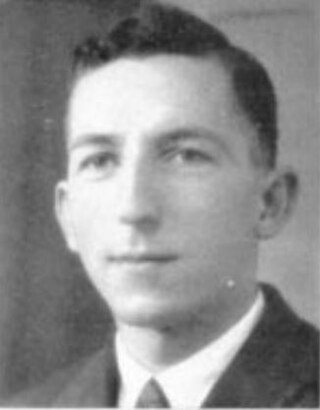
Vaduz is the capital of Liechtenstein and also the seat of the national parliament. The city, which is located along the Rhine, has 5,696 residents. The most prominent landmark of Vaduz is Vaduz Castle, perched atop a steep hill overlooking the city. It is home to the reigning prince of Liechtenstein and the Liechtenstein princely family. The city's distinctive architecture is also displayed in landmarks such as the Cathedral of St. Florin, Government House, City Hall, the National Art Gallery, as well as the National Museum. Although Vaduz is the best-known town in the principality internationally, it is not the largest; neighbouring Schaan has a larger population.

The 1956 Summer Olympics, officially known as the Games of the XVI Olympiad, were an international multi-sport event held in Melbourne, Victoria, Australia, from 22 November to 8 December 1956, with the exception of the equestrian events, which were held in Stockholm, Sweden, in June 1956.

The British Virgin Islands competed at the 2004 Summer Olympics in Athens, Greece, from 13 to 29 August 2004. This was the nation's sixth appearance at the Summer Olympics since its debut in the 1984 Summer Olympics. The British Virgin Islands delegation included only one athlete, meaning the country, along with Brunei and Liechtenstein, sent the lowest number of athletes to the 2004 Summer Games. The athlete selected was sprinter Dion Crabbe, an athlete who qualified for the Olympics by meeting the "A" standard time required for his event, the men's 200 meters. Crabbe was also selected as flag bearer for the opening ceremony. He did not progress beyond the heats, meaning the British Virgin Islands won no medals at this Summer Olympics.

Brunei, as Brunei Darussalam, competed at the 2004 Summer Olympics in Athens, Greece, which took place between 13 and 29 August 2004. The country's participation in Athens marked its fourth appearance at the Summer Olympics since its debut in the 1988 Summer Olympics.

Alexander Frick was a political figure from Liechtenstein who served as Prime Minister of Liechtenstein from 1945 to 1962.

Finland competed at the 1920 Summer Olympics in Antwerp, Belgium for the first time as a fully independent state. It did compete at the previous Olympics, however, only as the Russian-dependent Grand Duchy of Finland. 63 competitors, 62 men and 1 woman, took part in 51 events in 9 sports.

Liechtenstein competed at the 1956 Winter Olympics in Cortina d'Ampezzo, Italy.

Liechtenstein competed at the 1972 Winter Olympics in Sapporo, Japan.

Palestine, participated at the 1996 Summer Olympics in Atlanta, United States, from 19 July to 4 August 1996. The Palestinian delegation at the 1996 Games included two athletes, runners Majed Abu Maraheel and Ihab Salama, and one official, Muammar Bississo, the president of the Palestine Olympic Committee.

Liechtenstein first participated in the Olympic Games in 1936, and has sent athletes to compete in most Summer Olympic Games and Winter Olympic Games since then. The Liechtenstein Olympic Committee was created in 1935.

Baron Eduard Oleg Alexandrowitsch von Falz-Fein was a Liechtensteiner businessman, journalist, and sportsman.

Xaver Frick was a Liechtensteiner Olympic track and field athlete and cross-country skier.
Liechtenstein Olympic Committee is the National Olympic Committee representing Liechtenstein. Before the organisation was renamed in 2013 it was called "Liechtensteinischer Olympischer Sportverband" (LOSV).

The men's discus throw event was part of the track and field athletics programme at the 1936 Summer Olympics. The competition was held on August 5, 1936. Thirty-one athletes from 17 nations competed. The maximum number of athletes per nation had been set at 3 since the 1930 Olympic Congress. The final was won by Ken Carpenter of the United States. It was the nation's fourth consecutive, and seventh overall, victory in the men's discus throw; it was also the second consecutive Games that the Americans finished with both of the top two places, as Gordon Dunn took silver. Giorgio Oberweger earned Italy's first men's discus throw medal with his bronze.

Liechtenstein competed at the 2016 Summer Olympics in Rio de Janeiro, Brazil, from 5 to 21 August 2016. Since the nation's official debut in 1936, Liechtensteinian athletes have appeared in every edition of the Summer Olympic Games, except for two occasions. Liechtenstein did not register any athletes at the 1956 Summer Olympics in Melbourne, and eventually joined the United States-led boycott when Moscow hosted the 1980 Summer Olympics. The 2016 delegation included two swimmers, Christoph Meier and Julia Hassler, and tennis player Stephanie Vogt. Two of the athletes debuted in the 2012 Summer Olympics, with long-distance freestyle swimmer Julia Hassler leading the squad as the nation's flag bearer in the opening ceremony. Liechtenstein has yet to win a Summer Olympic medal.

Oskar Ospelt was a Liechtenstein sprinter. He was the flag-bearer and competed in the men's 100 metres at the 1936 Summer Olympics. He also competed in the men's discus.
Eduard Theodor von Falz-Fein was a Liechtensteiner bobsledder who competed in the 1936 Winter Olympic Games, in the two man bobsleigh, also as Liechtenstein's attaché at the 1936 Summer Olympics. He was born in Berlin and was a cousin of Eduard Oleg Alexandrowitsch von Falz-Fein, who was also born in 1912.

Haiti was set to participate at the 1936 Summer Olympics in Berlin, Germany, but its only athlete, weightlifter René Ambroise, pulled out due to injury. In the days before the Games began, the Liechtenstein delegation noticed that its national flag was identical to that of Haiti, however, resulting in both altering the flags for the opening ceremony and, in 1937, Liechtenstein changing its flag.
Woldemar von Falz-Fein was a Liechtenstein baron of Ukrainian descent. Under his initiative, the Liechtenstein Olympic Committee was founded in 1935, alongside Eduard von Falz-Fein.


















